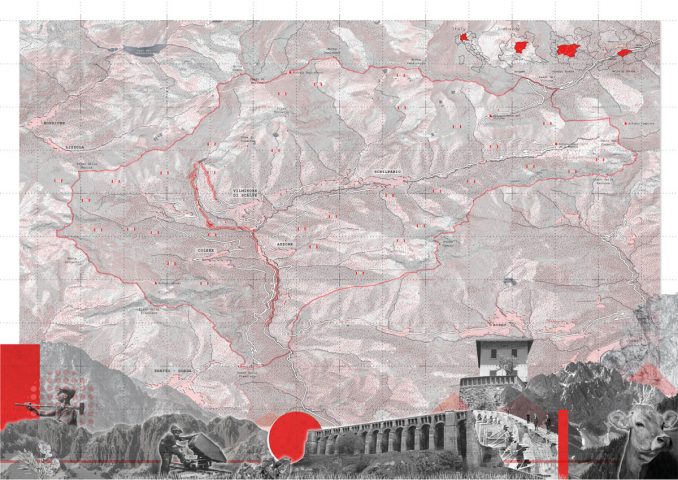
The new economic and cultural models of modern society have gradually marginalized the slow pace of the Alpine territory, putting it in competition with an increasing necessity for higher speed, higher quantitative production, and connectivity.
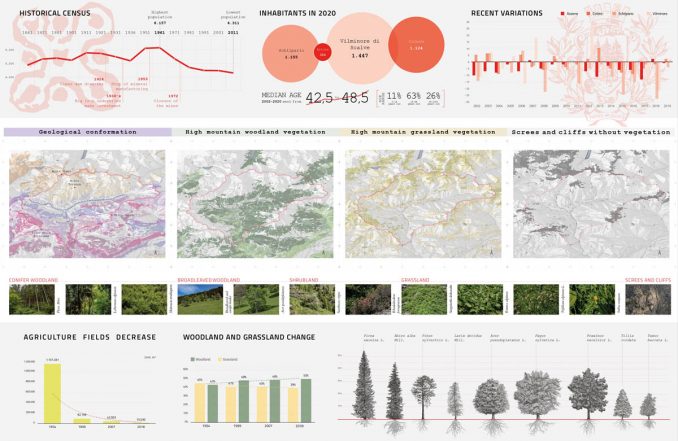

The urban-centric territorial development has also led to an increasing cultural approximation of the mountain territories. They are lived less as an opportunity and more as a “barrier”, being interpreted as an impediment to fast development. This approach prevents humans from comprehending the richness and the cultural relevancy of this extra-urban microcosm, which has often opted for delocalized stereotypes to best replicate tourist expectations.
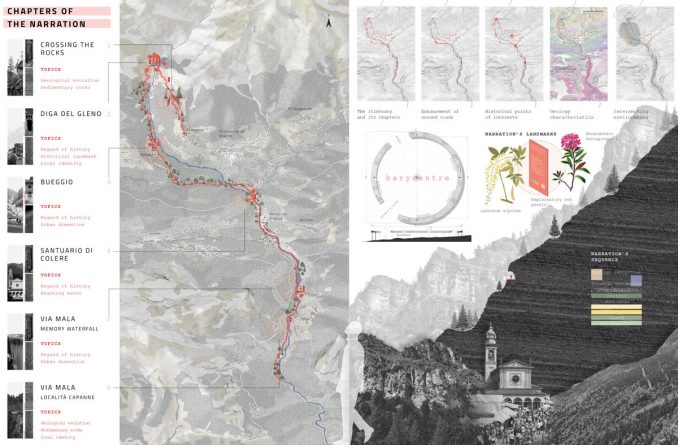
To contrast this negative trend, it is necessary to efficiently use the mountain’s cultural landscape, which is an element of uniqueness and high recognizability in the collective imagination. The balance between man and nature has never reached a higher level than in the mountains, where humans have always listened to and respected the second. Mountain life is still marked by nature’s rhythm, which is considered the undisputed sovereign of space and its life. For this reason, the recovery of this marginalized territory starts inevitably from the enhancement of this exceptional collaboration, which is rarer and rarer these days.
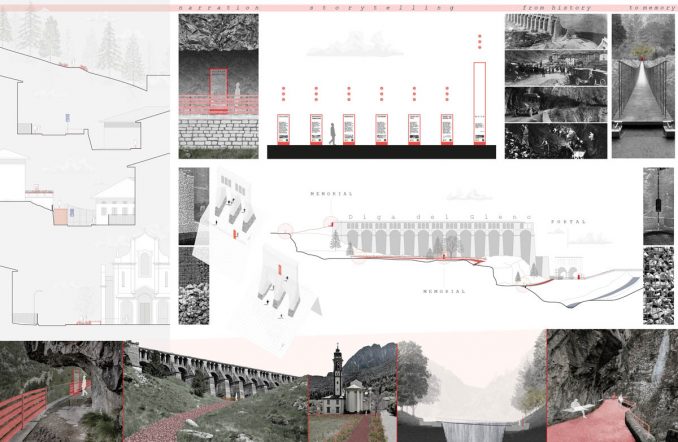
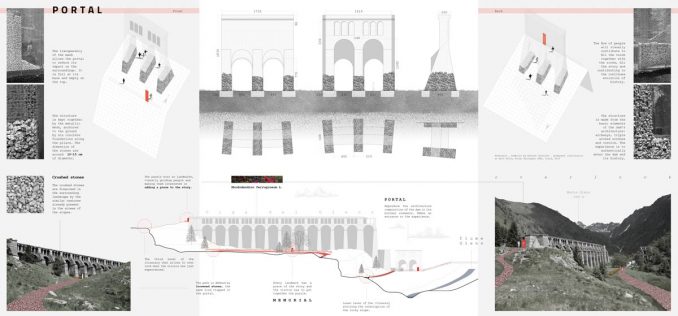
The location chosen for trying to answer this theory is Valle di Scalve, a valley located inside the Italian Alpine Mountain system in the extreme northeast corner of Bergamo province, Lombardy. It is part of the Prealpi Orobie system, a subsection of the Alps with a large range along the north of Italy.
This choice comes firstly from a personal attachment to the territory. My father’s family has lived in this valley for generations, and my love for this place has been transmitted to me since a very young age. This background gave me a deeper understanding of its history and identity, integrating into my analysis and decisions also some authentic inputs from families and friends.
This territory is also the ideal case study for the premises of the work, which has a strong willingness to enhance cultural and historical richness in an alpine environment. Valle di Scalve has indeed a very intricated and deep cultural background to be told, accompanied by an equally rich and diverse natural environment.
Other reasons that contributed to the choice of this valley are its still active and present population, the manageable dimensions of the administrative surface and its characteristic of morphological and identity enclosure, well protecting its millennial characteristics until today.
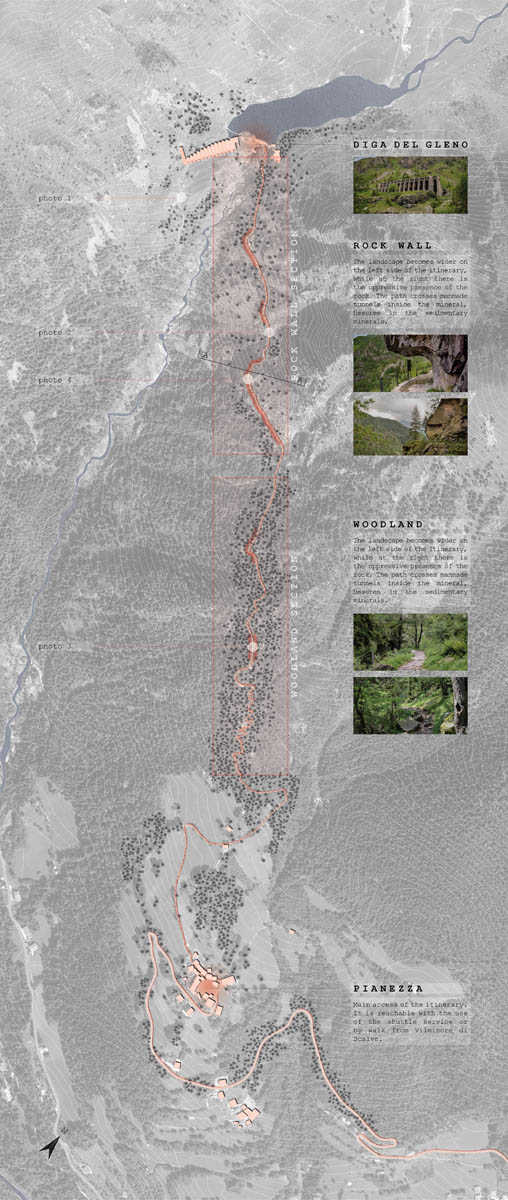
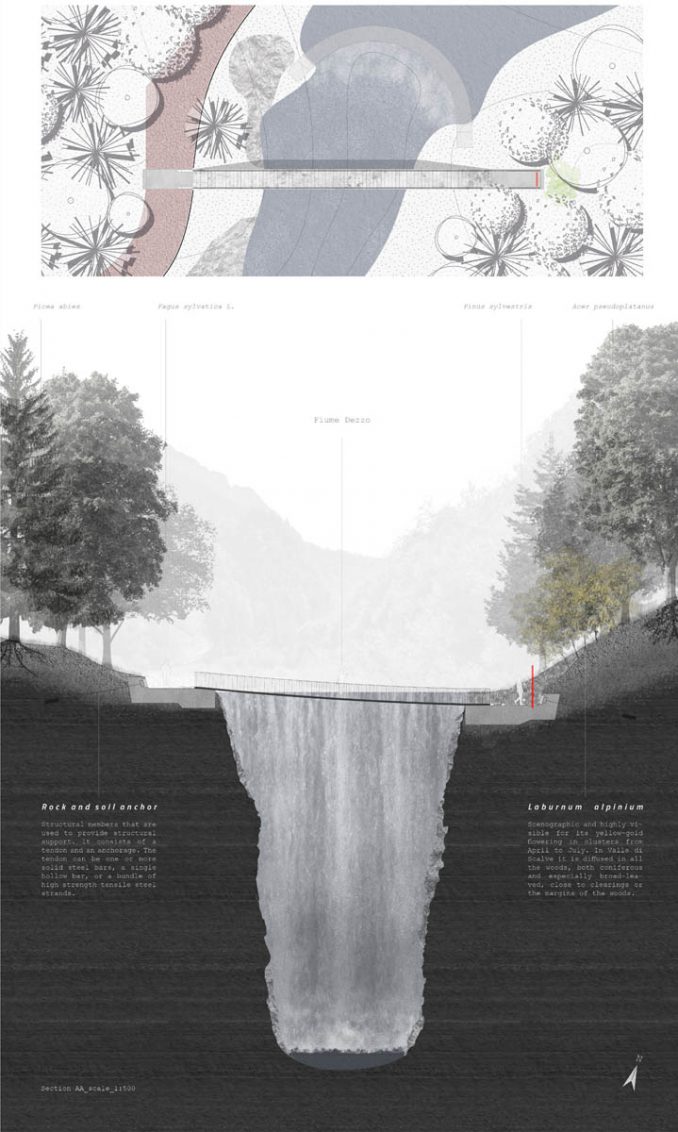
The project proposal of this thesis, very positively reviewed by the master’s degree commission, it has also been shown to the municipalities of the Valley, which have been involved in the decision-making process of the selected focuses at the beginning of the work. There is interest on their part to use these landscape design inputs to improve their land concretely, working with the richness of their history and their underrated landscape.
Student Project | Enhancement of the quality of the mountain landscape | Sara Guerini
Student name: Sara Guerini
University: Politecnico di Milano
Supervisor: Antonio Emilio Longo
